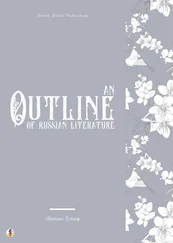Bearing an enormous silver tray the waiter approached. He unloaded the dishes one after the other and placed them on the table. Having taken such trouble with the ordering of the food, Angeliki served herself only minuscule amounts, her forehead furrowed with frowns as she prodded her spoon into each one. Paniotis arranged a selection of things on my plate, explaining to me what they were. He said that he had last come to this restaurant on the eve of his daughter’s departure to America, when likewise he had not wished to be interrupted by acquaintances, of which, at this point, he had far too many in Athens. Sharing the food, they had reminisced about a holiday they once took along the coast north of Thessaloniki, from where many of these dishes originated. He held up the spoon and asked Angeliki whether she wouldn’t take a little more, but she half closed her eyes and inclined her head in reply, like a saint patiently refusing temptation. And you, he said to me, you have very little also. I explained that I had eaten souvlaki for lunch. Paniotis grimaced, and Angeliki wrinkled her nose.
‘Souvlaki is very greasy,’ she said. ‘Along with their indolence,’ she added, ‘it is the reason why the Greeks are so fat.’
I asked Paniotis how long ago it was that he had travelled north with his daughter, and he said that it was very shortly after he and his wife had divorced. In fact it was the first time he had taken his children anywhere on his own. He remembered that in the car, driving out of Athens and into the hills, he had kept glancing at them on the back seat in the rearview mirror, feeling as wrongful as if he were kidnapping them. He expected them, at any minute, to discover his crime and demand their immediate return to Athens and their mother, but they did not: in fact, they made no comment on the situation at all, not during all the long hours of a journey in which Paniotis felt himself to be getting further and further away from everything trusted and known, everything familiar, and most of all from the whole security of the home he had made with his wife, which of course no longer even existed. Yet moving geographically away from this scene of loss felt unbearable, just as sometimes, said Paniotis, people cannot bear to go away from the place where a loved one has died.
‘I kept waiting for the children to ask to go home,’ he said, ‘but in fact it was I who wanted to go home: I began to realise, in the car, that as far as they were concerned they were home, at least partly, because they were with me.’
That, he said, was the loneliest of realisations; and it was not helped by their arrival at the hotel where they were due to break their journey for the night, which was a most terrible place in a scruffy, windswept seaside town where a giant apartment complex had been half built and then abandoned, so that everywhere there were huge piles of sand and cement and great stacks of breeze blocks, as well as large pieces of machinery that appeared to have been simply left there mid-job, diggers with shovels of earth half raised, forklift trucks with pallets still suspended on their outstretched prongs, all frozen in situ like prehistoric monsters drowned in silt, while the building itself, an aborted embryo in a still-fresh swirl of tarmac, stood in all its spectral madness, staring with its glassless windows out to sea. Their hotel was filthy and full of mosquitoes, and there was cement grit between the sheets, and it amazed him to see his children bouncing and laughing on the ugly metal beds with their garish nylon covers, for up until now — sometimes by arrangement but often by mere chance — he and his wife had only ever taken them to places of beauty and comfort, and as well as being filled with the dreadful conviction that his life from here on was going to be as luckless as the previous life had been fortunate, he felt the most terrible pity for the children themselves. He had booked one room for the three of them and eventually he got them to bed, but lay awake for many hours himself, sandwiched between them: ‘never,’ Paniotis said, ‘have I found a night as hard to get through as that one. And in the morning, however it came, we saw that the weather was bad, as it can sometimes be along that coast at Easter. It was already raining very hard, and was so windy on the shore, where the hotel looked out, that the spume was lifted from the water and blew away in great desolate sweeps that looked like phantoms crossing the sky. We should have stayed where we were, but I was so determined to get away that I put the children back in the car and started to drive with the rain hammering on the roof, hardly able to see where I was going. At points the road had been turned literally to mud, and as we climbed back up into the hills above the coast I saw there was an actual danger it might be washed away. On top of that, the children had been bitten very badly by mosquitoes during the night and had scratched the bites, some of which looked like they might become infected. So I needed to find a pharmacy, but in all the drama of the rain I must have taken a wrong turning, because instead of joining the motorway the road became steeper and steeper and narrower and narrower and the hills more and more desolate, until I saw that we were in a veritable mountain range, with enormous dizzying drops to each side and great wads of cloud around the peaks. The storm had caused herds of goats and mountain pigs to run madly over the mountainsides, and sometimes they came swarming across the road right in front of the car; and then, a little further on, the road was deluged from above by a river that had burst its banks and the children screamed as the water poured through one of the windows that had been left slightly open. The sky was so black by now that even though it was only late morning it was as if night had fallen; but up ahead, through the rain, I suddenly saw a building where there were lights. Amazingly enough, it was a mountain inn, just beside the road, and we pulled over straight away, jumping out of the car and running across to the entrance of the low stone building with our jackets over our heads and flinging open the door. It was a nice enough place, in fact, and we must have looked quite extraordinary to the people inside, the children covered in bleeding bites, all three of us unkempt and soaking wet. The main room was full of girl scouts, at least thirty of them, all wearing a uniform that consisted of a navy skirt and blouse, a navy beret and a knotted yellow tie. They were singing all together, a song in French, with one or two of them accompanying on small musical instruments. This bizarre scene seemed quite acceptable to me, after the awful seaside town and the storm and the mad goats; and in fact one of the things that happened to me on that holiday, and that I believe has not changed since, was that I began to feel for the first time that I was seeing what was really there, without asking myself whether or not I was expecting to see it. When I think back to the time before, and especially to the years of my marriage, it seems to me as though my wife and I looked at the world through a long lens of preconception, by which we held ourselves at some unbreachable distance from what was around us, a distance that constituted a kind of safety but also created a space for illusion. We never, I think, discovered the true nature of the things we saw, any more than we were ever in danger of being affected by them; we peered at them, at people and places, like people on a ship peer at the passing mainland, and should we have seen them in any kind of trouble, or they us, there would have been nothing whatever either one of us could have done about it.
‘It may have been to say something of this sort that I suddenly felt an overpowering need to talk to my wife, and I asked the owner of the inn if she had a telephone I could use. The girl scouts — who were part of a religious organisation of a kind I believe is quite common in France, and who told us they were on a walking tour of the area — had meanwhile made room on the benches around the large wooden table at which they sat and had cheerfully resumed their singing while the rain came down in torrents outside. The woman showed me the telephone, and asked if I would like her to make some hot chocolate for the children. She also produced, in her kindness, a tube of disinfectant cream for their bites. In the telephone booth I dialled the number of my wife’s new apartment in Athens, and was surprised to hear a man answer the phone. When eventually I got Chrysta on the line I told her everything about our predicament, said that we were lost somewhere in the mountains, that there was a terrible storm, that the children were frightened and covered in mosquito bites and that I doubted my ability to cope in such a crisis. But instead of responding with sympathy and concern, she was absolutely silent. The silence was only a few seconds long, but in that period, while she failed to come in on time and to take up, as it were, her part in our lifelong duet, I understood, completely and definitively, that Chrysta and I were no longer married, and that the war we were embroiled in was not merely a bitterer version of the same lifelong engagement, but was something far more evil, something that had destruction, annihilation, non-existence as its ambition. Most of all it wanted silence: and this, I realised, was what my conversations with Chrysta were all leading towards, a silence that would in the end remain unbroken, though on this occasion she did break it. I’m sure you’ll manage somehow, was what she said. And shortly after, the conversation concluded.
Читать дальше












